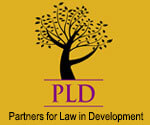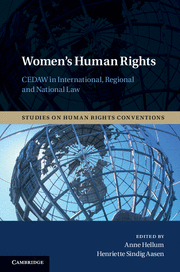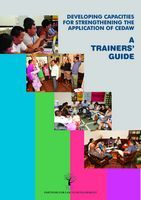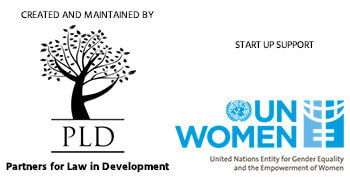The Institutional Resources section provides information about non-government organizations and other bodies that are currently engaged actively with CEDAW and women’s rights issues in South Asia. The information has been compiled by UN Women.
Agencies
Ain o Salish Kendra (ASK) Email | Website
Ain o Salish Kendra (ASK) is a national legal aid and human rights organisation based in Bangladesh. With is goal to establish the rule of law based on the principles of equality, democracy, human rights, justice and gender equity, it has been engaged in investigation, advocacy, media campaigning, documentation including CEDAW Shadow Report, training and action research as well as legal services. ASK is an active member of regional or international human rights fora, and works in partnership with the Asia Pacific Forum for Women, Law and Development (APWLD), the International Women’s Rights Action Watch-Asia Pacific (IWRAW-AP) and some others. With its special consultative status with UN ECOSOC since 1998, it also engages in advocacy with UN agencies and treaty monitoring bodies, and special procedures, on issues of concern.
Countries of work: Bangladesh
Working languages: English and Bangla
Association for Advocacy and Legal Initiative (AALI) Email | Website
Association for Advocacy and Legal Initiative (AALI) is a feminist legal advocacy organization working since 1998, for the realization of human rights of women with a special focus on violence against women. They implement Domestic Application of Human Rights Instruments (DAHRI) a training course (in Hindi) designed for individual defenders dealing with violations of women human rights as well as advocates of human rights, working at community and municipal levels.
Countries of work: India
Working languages: English and Hindi
Center for Women’s Research (CENWOR) Email | Website
Center for Women’s Research (CENWOR) is a non-governmental, non-profit organisation in Sri Lanka, working towards gender equality and empowerment of women. It actively engages in advocacy and lobbying for the implementation of the provision of CEDAW, the national women’s charter, the UN Beijing Platform for Action and its national action plan. Besides policy and action oriented research on the corresponding critical areas of BPfA, it also works on information dissemination, training of the government and NGO staff members, development personnel, educators and the community, and monitoring on gender issues as well as networking at local and regional levels.
Countries of work: Sri Lanka
Working languages: English
Forum for Women Law and Development (FWLD) Email | Website
Forum for Women Law and Development (FWLD) is an NGO based in Kathmandu, Nepal working towards the elimination of all forms of discrimination against women in Nepal and protecting and promoting human rights through research and public education, advocacy, legal aid and litigation. FWLD strives for the national implementation of CEDAW and has organised number of trainings on CEDAW and its Optional Protocol. It also produced CEDAW Shadow Reports for Nepal and other publications on the Convention.
Countries of work: Nepal
Working languages: English and Nepali
International Women’s Rights Action Watch Asia Pacific Email | Website
International Women’s Rights Action Watch Asia Pacific (IWRAW Asia Pacific) is based in Malaysia and is the only regional/international NGO working with the CEDAW Convention as a main tool for change in the Asia Pacific since 1993. It contributes to the progressive interpretation, universalisation, implementation and realisation of women’s human rights through the lens of the CEDAW and other international human rights treaties. It facilitates a process through which the CEDAW Convention is used as a tool for applying international human rights standards at the national level and in a wide range of contexts (e.g. political participation, armed conflict, rights in marriage, violence against women, trafficking reproductive rights, employment etc.). These activities entail three key strategies: Building Capacity for Change; Enhancing Realisation of Rights and; Information, Dissemination Application and Exchange Strategy (IDEAS)
These encompass training, communication, information, education, advocacy and support national level women’s organisations and community groups working to improve the lives of women.
Countries of work: Regularly work in 15 countries in South Asia and Southeast Asia and have worked with several East Asian countries such as Mongolia and Hong Kong. These are Bangladesh, India, Nepal , Pakistan and Sri Lanka in South Asia and Burma, Cambodia, Laos , Indonesia, Malaysia , Philippines , Singapore , Thailand , Timor Leste and Vietnam in South East Asia.
Working languages: English
National Alliance of Women (NAWO) Email | Website
National Alliance of Women (NAWO) is a national network of women for peace, justice and development, which serves as an umbrella organisation for women’s group, institutions, NGOs and others in India. It was originally formed as National Advisory Committee, comprising of women leaders and activists to direct the preparatory process towards the Fourth World Conference on Women in Beijing 1995. With its role and vision redefined, now it works on protecting women’s rights, monitoring the government’s commitments, and implementing the Platform for Action with special focus on the eight point agenda identified at the Conference of Commitment, CEDAW and other UN Conventions as well as advocacy on women’s rights related issues. NAWO also has been in the forefront of the initiative in systematic training of women activists and lawyers on the CEDAW.
Countries of work: India
Working languages: English and Hindi
Partners for Law in Development (PLD) Email | Website
Partners for Law in Development (PLD) is a national level legal resource group based in New Delhi.The organisation works with community based groups, lawyers as well as state and statutory agencies/ institutions to provide capacity building and technical assistance on women’s rights in the region. PLD conducts residential training programmes to build and strengthen capacities on law, gender and human rights. The training programmes provide continuing education to activists and practitioners in social work, law and academia. They can be broadly categorised into three types, to distinguish each on the basis of their primary focus, although a single training may combine elements of all three. These are law, society and social justice, feminist perspectives on law and human rights and CEDAW.
Countries of work: Asia
Working languages: Hindi
PRO PUBLIC Email | Website
PRO PUBLIC is a NGO in Nepal, which plays the role of a social change agent in empowering citizens through research, advocacy, litigation and capacity building. It acts as a watchdog for women and child rights and in other areas, increasing accountability and transparency of the Government and private sector through good governance advocacy and judicial activities as well as enhancing the capacities of the government personnel and local and grassroots organisations staff. It has organised training of local representatives and women activists on CEDAW and conducted research on relevant women’s issues.
Countries of work: Nepal
Working languages: English and Nepali
Shirkat Gah Women’s Resource Centre Email | Website
Shirkat Gah Women’s Resource Centre is a leading organisation for women’s rights and gender equality in Pakistan. For more than thirty years it has facilitated women’s empowerment by increasing their access to information, resources, skills and decision making, and helped to bring about positive change to policies, laws, and practices. Amongst its areas of activities, Shirkat Gah is working on advocacy, capacity building especially of women, and training. Shirkat Gah has in-house expertise to conduct training on CEDAW. Shirkat Gah produced the Second CEDAW Shadow Report for Pakistan in 2007.
Countries of work: Pakistan
Working languages: English
Simorgh Women’s Resource Center Email | Website
Simorgh Women’s Resource Center – Women Living Under Muslim Laws mainly focuses on research on women by women in order to free both women and men from the dominance of ideas that support social and economic divisions on the basis of gender, class, religion, race and nationality. Simorgh works with students, teachers, media and professionals, and has strong links with other national and international women’s groups. In addition to doing a variety of publishing, Simorgh conducts seminars, conferences, income generation projects and gender awareness workshops.
It brings out “BAYAN” a socio-legal journal, with the aim of providing a critical edge to legal discourse in Pakistan. BAYAN’s point of departure from other legal journals in the country lies in the fact that it focuses on and highlights the connection between laws, legal practice, culture and society, thus granting visibility to the contradictions and lacunae in the laws when they come into play within the historically contingent and fluid terrain of people’s lives and circumstances.
Countries of work: Pakistan
Working languages: English
Society for the Advancement of Education (SAHE) Email | Website
Society for the Advancement of Education (SAHE) is a non-profit, non-governmental organisation in Pakistan responding to the deteriorating standards of education and the first of its kind to focus on the cause of accessible quality education for the disadvantaged in Pakistan and has played a pivotal role in the civil society movement. It has extensive experience and expertise in implementing indigenous models of human resource development through strong networking relationships with NGOs and institutions of higher learning, and of associating with well-known researchers and teachers. It has also collaborated with local NGOs in different districts and provinces for providing training to both Government and NGO teachers/staff to ensure the involvement of local organisations and to contribute to the development of sustainable networks and structures. It published ‘An Illustrated Book on CEDAW’, which aims to raise civil society awareness on CEDAW and gender equality.
Countries of work: Pakistan
Working languages: Hindi, Urdu










